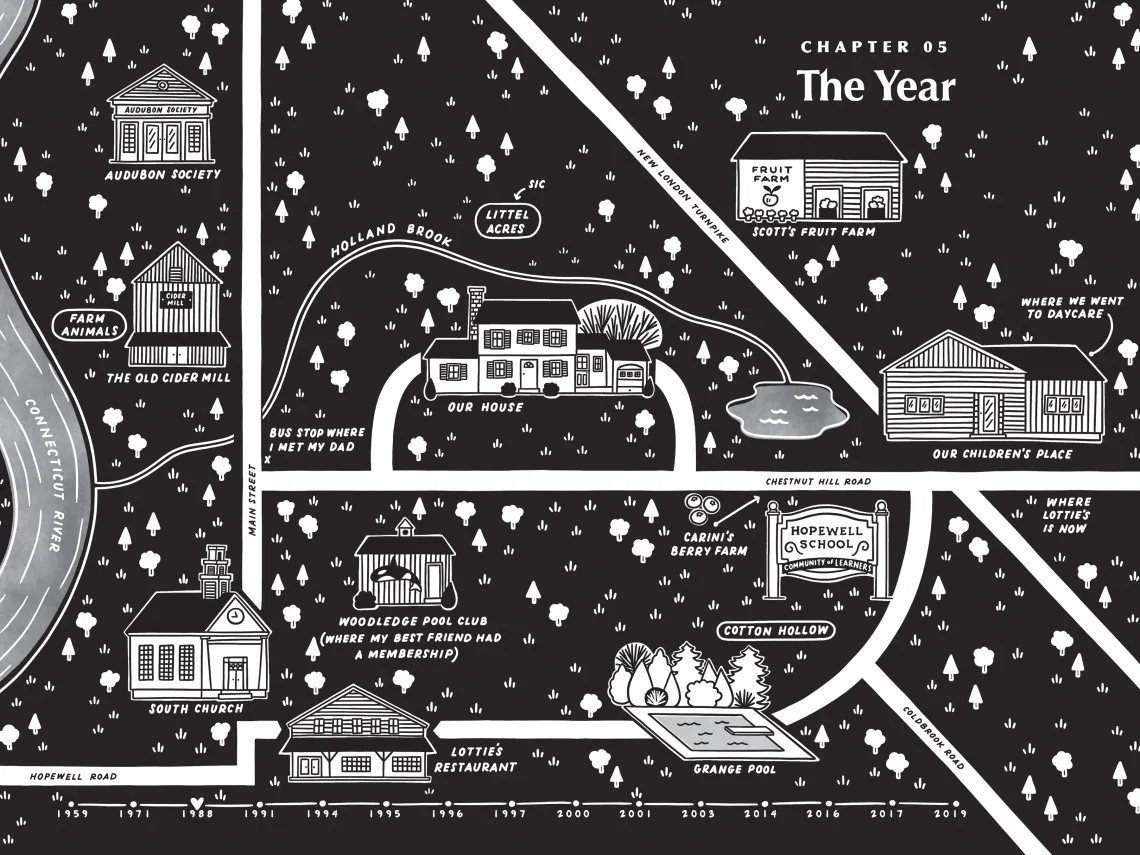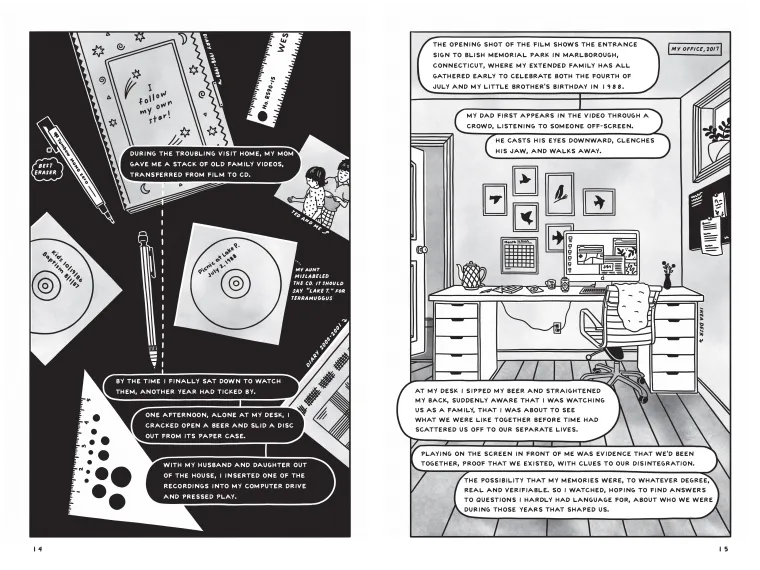Truth in Grayscale
Alumna Author and Illustrator Margaret Kimball

In her debut graphic memoir, “And Now I Spill the Family Secrets,” Margaret Kimball peels back familial silence and layers of memory to uncover a compound fracture of facts. Part coming-of-age story, part genuine mystery, Kimball’s narrative stands on its own and would be a compelling read even without illustrations. However, Kimball’s distinctive illustrative style creates an immersive experience for the reader, bringing the immediacy of visual scenes to the momentum of the written narrative.
The complexity of Kimball’s task in telling the story of intergenerational traumas through first- person accounts, photographs, found items, official documents, memory and other means is addressed seamlessly with visual codes and cues. Throughout the book, Kimball’s humor, alternately hilarious and heartbreaking, brings to mind Marjane Satrapi’s work, while her investigative approach hearkens to Alison Bechdel’s inquiries into her own family dynamics and true events impossible to comprehend.
“And Now I Spill the Family Secrets” also offers a refreshing commitment to truth in nonfiction and places a clear emphasis on intimacy with the reader.
The truth may often be a gray area, but the reading experience is so vibrant, a reader could be forgiven for not noticing that Kimball’s truth-telling unfolds entirely in black and white.
Q: What was exciting about creating this book?
A: What became the most exciting part about making this book, for me, was that investigation of trying to pinpoint the timeline and trying to get people to pin down their stories. Because every time I talk to my mom, she’ll add a detail or something will change a little bit. And it’s the same for everybody — for my siblings, my dad. That was so exciting. So I made that part of the narrative as well — that investigative quality. There’s a dual timeline: me now, kind of investigating, plus me as a kid growing up.
So much of the satisfaction for me in writing this book was coming to terms with what happened, you know. Figuring out what happened first, and then feeling like I could come to terms with it. And that’s the solace for me and what I hope is the solace for other readers — feeling less alone with their own dysfunctional family stories.
Q: How do you tell a story clearly when it is, by definition, not clear?
A: I think, first of all, it’s hard to speak clearly and plainly. But I feel like to do anything other than to try and speak clearly and plainly is to avoid the heart of the matter. I think that avoidance is doing a disservice to the reader, and I don’t understand why people do it. I just feel like — for the sake of intimacy, which is what I hope the act of reading creates — you need to speak as clearly as you possibly can. I know all of academia will berate me for that kind of opinion, but I just want intimacy — that’s what I crave. So I feel like the more open a writer can be, the happier a reader I am. I try to do that, too, so I’m not being a hypocrite.
Q: You say to your mother, “I’m not writing about you — I’m writing about me.” You go on to reflect that, of course you’re writing about her. Can you revisit this question of whose story you are telling from where you stand now?
A: I think every story is more than one person’s story. But I didn’t know that, you know, when I said that to my mom. I was in my 20s. And I just thought I could be like, “Well, this is about me, not you.” I think with my mom, I wanted to understand this intuition that her experiences impacted the entire family, which is absolutely true. So also, out of the other side of my mouth, I was asking, “Could you tell me more about you? Because I’m writing about myself, and I need your story to do that.” It just wasn’t all clear to me then.
Q: Is this is a story you had to write more than one you wanted to write?
A: Yeah. I mean, I put it down so many times. It’s so much easier not to write a book. Writing a book is so miserable in so many ways. But there was something in me with this story — with this story in particular — that was like, “You need to write this down. You need to figure out what happened.” But yeah, I wanted to not write this book. It would have been better for my family relationships at different times. I do think, though, that it ultimately deepened my relationships with my individual family members and my mom in particular, which I’m grateful for.


